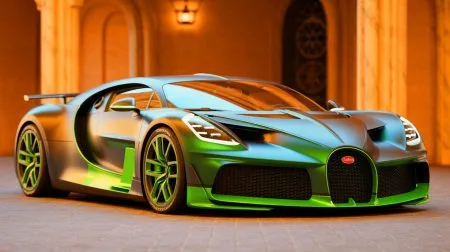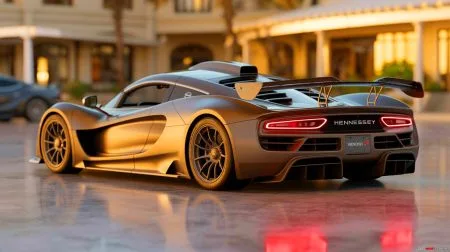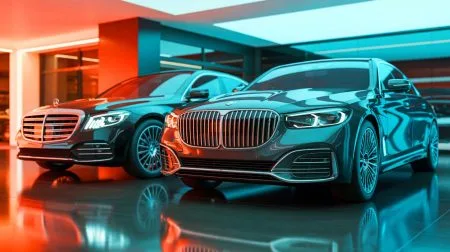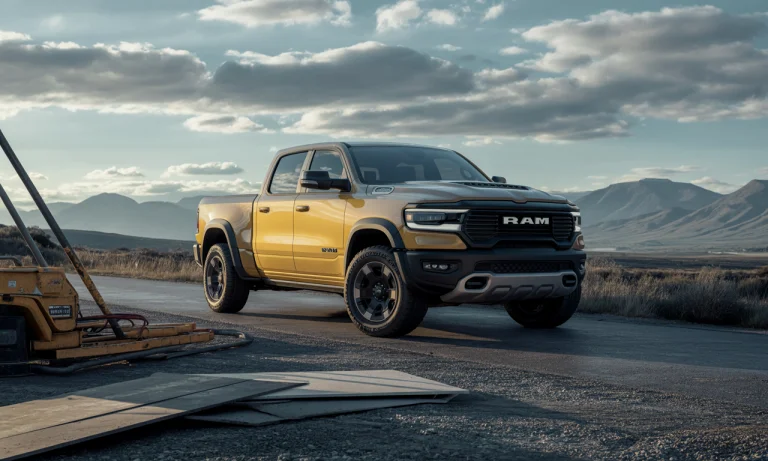Once among the most anticipated launches in the electric vehicle race, Ram’s all-electric pickup has now officially exited the main stage. Industry insiders and passionate truck enthusiasts alike recall the moment at the 2023 New York Auto Show: Ram unveiled the 1500 REV, confidently positioned alongside electric rivals from Ford and Chevrolet, promising range, muscle, and innovative tech. Yet, as the months passed, the vision began to unravel. Today, as demand for large battery-powered trucks tapers in North America, Ram has pulled the plug on its flagship EV project, recalibrating both strategy and expectations. Instead of blazing ahead with a direct answer to Ford’s F-150 Lightning or the Chevrolet Silverado EV, Ram pivots toward its hybrid Ramcharger, and even revives its famed Hemi V-8. This chapter is not unique—other legendary brands like Tesla, Toyota, Nissan, Lucid Motors, Rivian, GMC, and Bollinger Motors now all navigate an unpredictable marketplace, balancing innovation with consumer realities. The landscape for electrified pickups enters uncharted territory.
Ram 1500 REV Cancellation: A Turning Point for Electric Truck Competition
The news hit the automotive world like a splash of cold water—Ram, having stirred excitement with its 1500 REV, is halting development on its full-size electric truck. Behind the headlines, the reasoning is as pragmatic as it is telling: faced with slowing demand for pure electric pickups, the Stellantis group, Ram’s parent company, must reassess. As other giants such as Ford and Chevrolet advance with their own electric trucks, market uncertainty has forced tough choices. Ram’s move shines a spotlight on a broader industry pause; rivals Tesla and Rivian, once crowning their Cybertruck and R1T as the future, now face similar scrutiny over volume demand and production timelines.
Ford and Chevrolet’s commitments to the electric transition remain, but challenges mount—from logistical headaches to consumer hesitancy. Alongside Ram, traditional automakers and even startups like Bollinger Motors now reconsider pathways forward. Each faces a crossroads between innovation and economic sustainability, as highlighted in industry analyses such as future electric vehicle trends. As brands realign, the competitive fray has evolved into a race not just of specs, but of strategic pivots and market timing.
| Brand | Flagship Electric Truck | Status (As of 2025) |
|---|---|---|
| Ram | 1500 REV | Cancelled, focus on hybrid (Ramcharger) |
| Ford | F-150 Lightning | Ongoing production, facing fluctuating demand |
| Chevrolet | Silverado EV | Limited rollout, cautious expansion |
| Tesla | Cybertruck | Production delays, uncertain forecasts |
| Rivian | R1T | Niche sales, supply chain constraints |
| GMC | Hummer EV | Slow scaling, pricing revisions |
| Toyota | Tundra EV (planned) | Development on hold |
Consequences of Strategy Shift: Why Ram’s Decision Matters
Decisions like Ram’s don’t occur in a vacuum. The ripple effects touch everyone from Detroit engineers to rural dealers, each recalibrating ambitions. Many had long viewed the full-size electric pickup as a litmus test for American EV adoption. The move by Stellantis—ending the 1500 REV’s journey—reflects both a cautious reading of sales data and a response to shifting consumer needs. In parallel, suppliers find themselves in legal disputes, tied to abrupt project terminations and lost contracts.
Ram’s adjustment is mirrored elsewhere: Audi, Honda, and Lamborghini all recently curbed ambitious electrification projects. The trend raises crucial questions for brands like Nissan and Lucid Motors, who must decide whether to double down on electric innovation or hedge with hybrids and advanced gasoline solutions, as seen in future eco-friendly cars. Market watchers now look to see if the next breakout will come from a bold, all-new tech or a clever hybrid compromise.
Ramcharger Hybrid Takes Center Stage: The Reshaping of Pickup Innovation
While the all-electric 1500 slips quietly away, the Ramcharger hybrid emerges as Ram’s new flagbearer for electrified pickups. Branded now as the new ‘REV,’ it offers a range-extended system: an electric drivetrain backed by a gasoline generator for longer hauls. The move is emblematic—a hybrid solution poised to address charging anxiety and infrastructure gaps that haunt the BEV pickup segment.
Ram’s return of the beloved Hemi V-8, a story admitted as “We screwed up” by CEO Tim Kuniskis, only fuels intrigue. It’s a nod both to traditional truck buyers—and the brand’s willingness to adapt. Far from unique, this pivot reflects a broader turn to hybridization, which can be explored through hybrid innovations in supercars. If the electric dream feels delayed, the hybrid compromise now promises to hold the segment aloft.
| Pickup Variant | Powertrain | Main Appeal |
|---|---|---|
| Ram 1500 REV (Cancelled) | Fully Electric (BEV) | Long range, zero emissions |
| Ramcharger (New REV) | Hybrid Range-Extended (REEV) | Flexibility, easier long-distance travel |
| Ram 1500 Hemi V-8 | Classic Gasoline | Performance, brand loyalty |
Elsewhere, GMC continues fine-tuning its Hummer EV; Lucid Motors and Bollinger Motors pilot new strategies involving sustainable materials, as detailed in future car materials. Each player wonders: will the hybrid era dominate this decade, or is the next surge of battery breakthroughs just around the corner?
Future Prospects for Electric Pickups: Where Does the Market Go From Here?
The electric truck saga presses on, with more questions than answers. Industry observers note that technology—such as wireless charging and rapid battery advances—could still revolutionize the segment. Meanwhile, innovative concepts from Toyota and Nissan linger on drawing boards, while engine innovations keep gasoline power relevant.
For now, brands refocus on customer needs: range, versatility, and affordability. Resources shift toward hybrids and plug-in solutions, hoping to bridge the gap to an all-electric future. The promise—and challenge—remains. In every boardroom and garage, the story of the all-electric pickup is alive, even as its present form changes course.
Across the board, companies big and small chase the next breakthrough, their engineers inspired by both setbacks and ambition. For those interested in the next phase of the story, deeper dives into upcoming vehicle launches and car tech innovation offer insights into how the next five years could play out—and what vehicles might reshape the roads of tomorrow.
Frequently Asked Questions About the Future of Electric Pickups and Ram’s Shift
What caused Ram to discontinue its electric pickup truck?
Ram’s decision was driven primarily by slowing demand for full-size electric trucks in North America. Changing market conditions and a reassessment of product strategy by parent company Stellantis resulted in the end of the 1500 REV’s development.
What is the new focus for Ram instead of the canceled electric truck?
Ram is now prioritizing its hybrid range-extended pickup, the Ramcharger, rebranded as the new 1500 REV. This vehicle combines electric propulsion with a gasoline generator, aiming to appeal to drivers who need longer range and quicker refueling.
How does the Ramcharger compare to fully electric and gasoline trucks?
The Ramcharger offers greater flexibility than a pure BEV by allowing long journeys without reliance on charging infrastructure. It bridges the gap between classic gasoline trucks and emerging electric models, providing a compelling hybrid alternative for today’s market.
Are other automakers also scaling back on electric trucks?
Yes, several automakers, including Audi, Honda, and Lamborghini, are reevaluating or even canceling major EV initiatives in response to market challenges. Brands like Ford, Tesla, Chevrolet, Toyota, Nissan, Lucid Motors, GMC, Bollinger Motors, and Rivian are all reconsidering their timelines and focus areas.
What could help revive the market for electric pickups in the future?
Breakthroughs in battery technology, charging infrastructure, and affordability are key. Developments in smart car tech and alternative energy solutions could help reignite consumer interest and accelerate the shift to electric pickups.
Did you like it? 4.4/5 (20)







